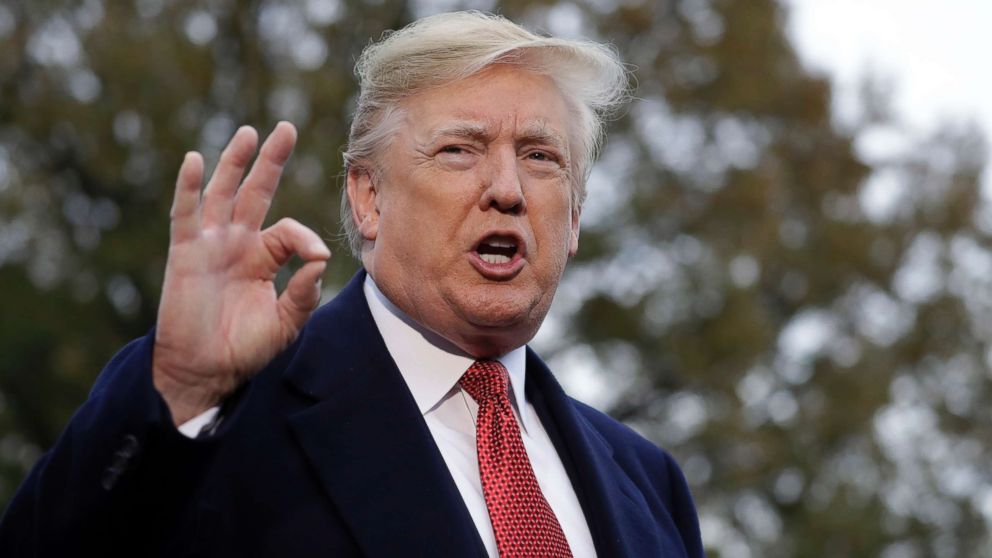Any American who watches the mainstream media knows America has become a much more racist place since President Donald Trump took office in 2017.
 Trump’s course language about illegal immigrants and terrorists has awakened the inner bigots that lurk in white people and unleashed a wave of hateful prejudice that’s tearing the country to tatters, the media reports.
Trump’s course language about illegal immigrants and terrorists has awakened the inner bigots that lurk in white people and unleashed a wave of hateful prejudice that’s tearing the country to tatters, the media reports.
Ironically – like the botched reporting on the Russia investigation, the Jussie Smollett hate hoax, the Covington Catholic debacle, and other televised spectacles – it’s actually just fake news.
A new study by two University of Pennsylvania sociologists shows the election of President Trump corresponded with a statistically significant drop in anti-black and anti-Hispanic prejudice in America, among both Republicans and Democrats.
It wasn’t the results they were expecting, and it suggests current thinking about race and prejudice is all wrong.
“Already, there is extensive research on the influence of racially charged political rhetoric on citizens’ attitudes. Yet the vast majority of this evidence examines priming effects, meaning that it studies whether exposure to rhetoric leads racial predispositions to become more integrated with voter choice or issue attitudes. The underlying assumption is typically that prejudice is a stable predisposition acquired early in life,” wrote researchers Daniel Hopkins and Samantha Washington.
“Here, we examine that assumption by asking a straightforward question: did Trump’s candidacy, rhetoric, and positions on racially inflected issues influence non-Hispanic white Americans’ prejudice against Blacks or Hispanics?”
Hopkins and Washington looked at the theory that Trump’s rhetoric “normalized” prejudiced views and encouraged folks to be more openly racist, as well as “opinion leadership” or the influence on voters to adopt positions advanced by political leaders.
“To test these hypotheses, we draw on a novel, 13-wave panel survey conducted with a nationally representative population of American adults between 2007 and 2018,” they wrote. “Our findings contradict both hypotheses, as we primarily find declining prejudice and racial resentment, and certainly no increases.”
The study involved thousands of Americans surveyed and resurveyed over a decade, which allowed researchers to identify specific shifts in attitude, and Trump’s rise to the presidency was significant.
President Obama’s election, on the other hand, was not.
“The panel’s many waves enable us to identify separate shifts in prejudice associated with Trump’s emergence as a political figure in 2015 and 2016, his late-2016 general election victory, and the initial years of his presidency,” according to the study, “The Rise of Trump, the Fall of Prejudice? Tracking White Americans’ Racial Attitudes 2008-2018 via a Panel Survey.”
“Theoretical perspectives emphasizing the normalization of prejudice or opinion leadership both led us to expect that expressed prejudice may have increased in this period, especially among Republicans or Trump supporters,” Hopkins and Washington wrote. “But our findings indicate the opposite, a result more consistent with theories of thermostatic response in which the public moves away from the direction of current policymaking.”
The new findings aren’t the first time that facts and research has debunked the prevailing media narrative. The Spectator notes it happened to Obama too.
“It might be added that the election of Barack Obama also caught liberal opinion unawares,” columnist Ross Clark wrote. “That event, it might be recalled, was supposed to be the breakthrough which led to a kindler, gentler America.
“Instead it seemed to be followed by a more fractious period in race relations, culminating in race riots in Ferguson, Mo., in 2014.”
Leave a Comment
COMMENTS POLICY: We have no tolerance for messages of violence, racism, vulgarity, obscenity or other such discourteous behavior. Thank you for contributing to a respectful and useful online dialogue.